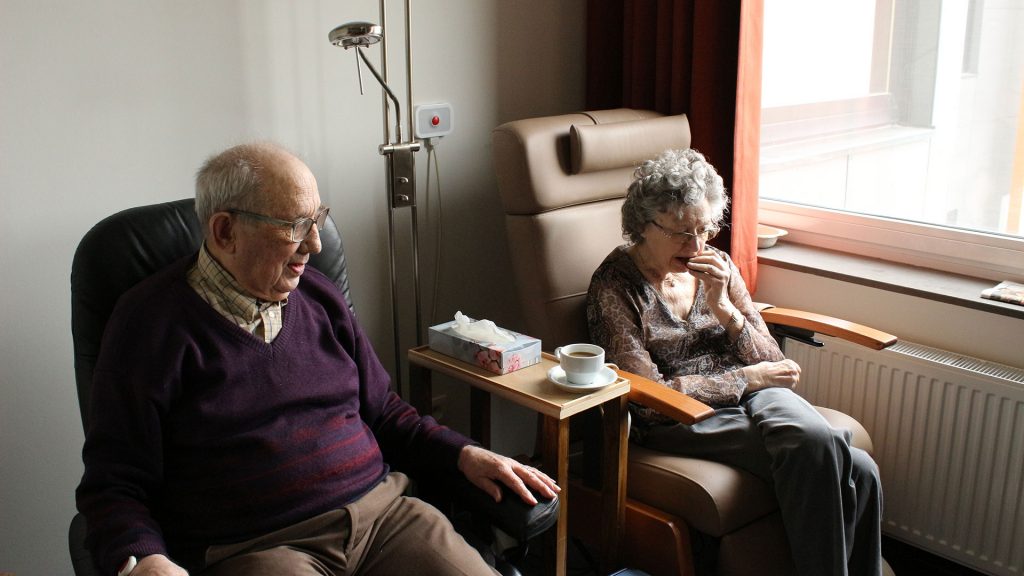Project Insights Report
CRADLE+: Canadian Remote Access for Dementia Learning Experiences
 Executive Summary
Executive Summary
Unregulated care workers (UCWs), including personal support workers, home support workers and personal aides, represent the largest paid workforce in Canadian health care, with over a million individuals employed in settings such as homes, nursing homes and retirement facilities. This project aimed to expand on an already-established program known as Canadian Remote Access for Dementia Learning Experiences (CRADLE), a free and accessible dementia care training program aimed at UWCs.
The expansion—CRADLE+—added additional modules, translated content into paskwâwiyinîmowin (Plains Cree) and Anishinaabemowin (Ojibwe), and developed a targeted recruitment campaign to reach UCWs in rural and remote areas.
The CRADLE+ project demonstrated the scalability of online training models for health care education to enhance service quality across the care sector. Funders and policymakers should note the direct relationship between accessible education and improved provider satisfaction and professional stability, as evidenced by better job conditions for participants post-training.
The successful implementation and outcomes of the CRADLE+ project addressed the immediate educational needs of a diverse range of caregivers and laid a foundation for expanded access to inclusive professional education. This project’s success holds lessons for sectors and industries outside of health care as well.
Key Insights
As of January 2024, 33,571 unregulated care workers had registered for CRADLE+.
Continuing education is needed to teach UCWs how to use existing essential skills to provide care to those with dementia.
Targeted recruitment attracted unregulated care workers from rural and remote areas.
 The Issue
The Issue
Dementia is an umbrella term for a spectrum of symptoms that disrupt daily activities due to significant loss of memory, cognition and social function. By 2030, nearly 1 million people in Canada are expected to be living with dementia.
Despite their substantial numbers, UCWs (including personal support workers, home support workers, personal aides, etc.) often receive minimal initial training on dementia, leaving them ill-equipped to meet the needs of clients with dementia. Training opportunities have been particularly scarce in rural and remote areas, where about one-third of UCWs work. The few available training programs are often expensive, have low retention rates, lack specialization in dementia care, and are typically only offered in official languages despite the large number of workers whose first language is neither English nor French.

 What We Investigated
What We Investigated
In response to these issues, the Canadian Institute for Seniors Care at Conestoga College launched CRADLE with the support of the Future Skills Centre. CRADLE is a pan-Canadian online program that provides accessible, comprehensive and specialized dementia care training specifically designed for UCWs. The original CRADLE program consisted of discussion forums and five brief interactive, online modules available in English, French, Mandarin and Tagalog.
CRADLE+ expanded the original CRADLE program by adding five additional modules that were designed in conjunction with employers, health authorities and advocacy groups that provide care and services to rural communities. The five additional modules included case examples that modelled real world priorities and care challenges, such as client refusal to eat, wandering and distress, disinterest in activities and refusal of care visits, as well as care provider burnout.
Project coordinators also conducted a survey with participants to better understand the knowledge and skills of Canadian care providers to inform their module development and targeted recruitment strategy. The survey included demographics, essential workplace skills, general knowledge of dementia, and facilitators and barriers to participation in continuing education.
Part of the expansion to CRADLE+ included translating all modules into Plains Cree and Ojibwe, and a targeted recruitment campaign to increase reach in rural and remote areas.
 What We’re Learning
What We’re Learning
The program is meeting the needs of unregulated care workers
CRADLE and CRADLE+ registered 33,571 UCWs as of January 2024. Surveyed UCWs expressed appreciation for the program’s accessibility, emphasizing the ability to work at their own pace, the informative module content, user-friendly navigation and the significant benefit of accessing the course without paying any fees. Particularly noteworthy was that the most frequently utilized tools were the online discussion groups for survey participants.
Investing in outreach pays off
The program implemented a diverse range of strategies to effectively reach its designated target populations. These approaches included:
- using paid advertisements;
- distributing flyers to employment agencies and settlement service providers;
- cold calling long-term-care homes;
- forming an advisory committee;
- hosting an international virtual conference on dementia care;
- actively engaging on social media platforms such as X and LinkedIn;
- participating in knowledge mobilization activities like webinars, newsletters and meetings.
While the original CRADLE encountered challenges with low uptake among UCWs in rural and remote areas, the expansion successfully addressed this issue by implementing a targeted marketing strategy tailored to reach UCWs in these specific regions.
Dementia education for family members is needed
Participants expressed a need for dementia education for family members. In practice, UCWs work collaboratively with family members to provide care for people living with dementia; however, family members do not need to know the same things as paid care providers. There is a need for family members to receive foundational learning on what a diagnosis of dementia means, the expected disease trajectory, the care team partners, provincially funded services available to assist family members, communication strategies to use with loved ones, planning for end of life, and self-care.
 Why It Matters
Why It Matters
The population in Canada is aging. It is expected that 1.7 million people in Canada could be living with dementia by 2050, which would require the support of UCWs across the country. It is critical to strengthen and expand the health care workforce in long-term care and community care settings through training programs and recruitment efforts. Content should be offered in accessible formats and multiple languages.
This project demonstrated the utility of also investing in targeted recruitment strategies to increase awareness of resources available. Other training programs looking to expand their reach should consider investing in marketing efforts

State of Skills:
Digital Tools in the Skills Ecosystem
There is considerable promise in the role digital tools and virtual career services can play in improving access to training and career development, particularly for those with geographic barriers or constraints such as family care or other work responsibilities.
Have questions about our work? Do you need access to a report in English or French? Please contact communications@fsc-ccf.ca.
More from FSC
Indigenous Tourism Association of Canada (ITAC)
Virtualization of experiential learning platforms and their pedagogical models
ABC Skills Hub
How to Cite This Report
Brown, C.M. (2024). Project Insights Report: CRADLE, the Canadian Remote Access for Dementia Learning Experiences, Conestoga College Institute of Technology and Advanced Learning. Toronto: Future Skills Centre.
CRADLE+: Canadian Remote Access for Dementia Learning Experiences is funded by the Government of Canada’s Future Skills Program. The opinions and interpretations in this publication are those of the author and do not necessarily reflect those of the Government of Canada.




